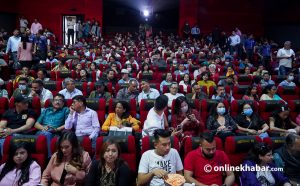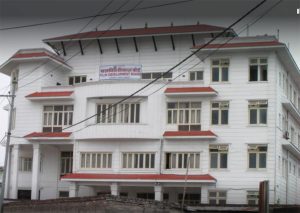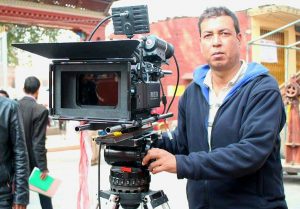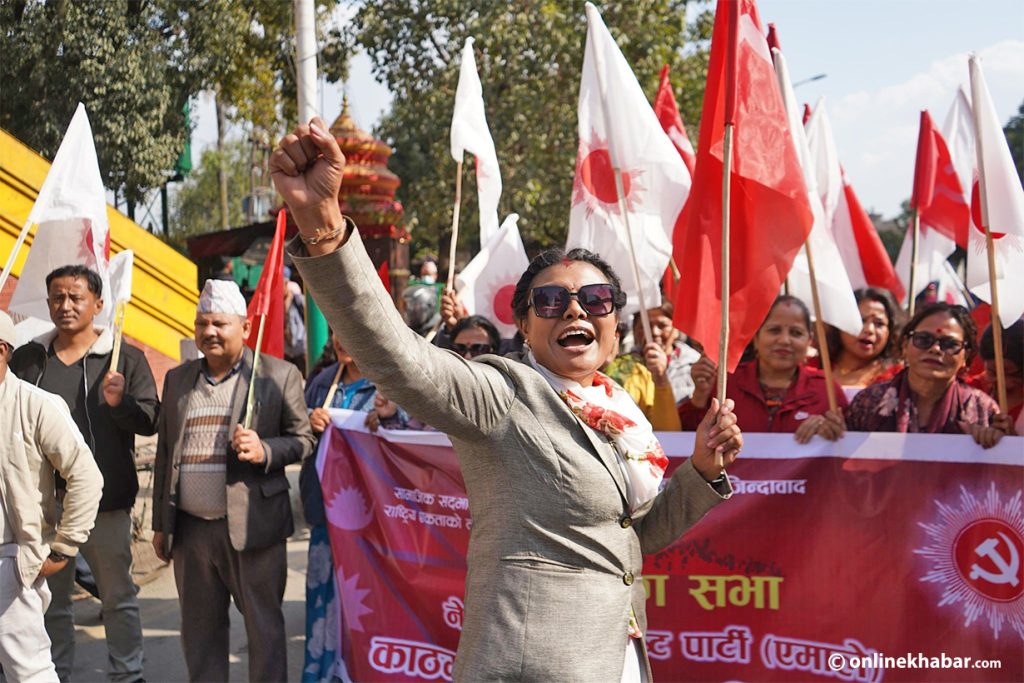
Establishing a film studio in Nepal has been a subject of discussion for several decades. However, despite ongoing conversations and deliberations, there has been no concrete progress or realisation of this aspiration to date.
Nevertheless, in July, the Council of Ministers gave the green light for the allocation of 2.5 hectares of land in Banepa to set up a cutting-edge film studio. The budget for fiscal year 2023/24 also incorporated a proposal for the construction of a film studio. However, it is worth noting that this is not the first time that the government has unveiled significant plans for the film industry. A decade ago, the government had earmarked land in Dangdunge Danda, Dolakha, for the development of a film city.
The initial announcement of establishing a film city in Dolakha sparked enthusiasm throughout the entire film sector. However, that excitement has dwindled over time. Despite a substantial budget allocation, there has been minimal progress in the actualisation of the film studio. Several factors contribute to this stagnation, with observers pointing to the state’s perceived lack of interest and indifference towards the film industry as one of the primary reasons.
“They [government] seem to have limited knowledge about the film sector and remain unaware of its potential benefits in terms of revenue generation and employment opportunities,” says Samipya Timalsena, a film critic.
Understanding the need

Addressing the absence of a film studio in the Nepali film industry, another significant concern revolves around the repercussions of this deficiency. Filmmakers and industry enthusiasts consistently claim that the time has come for the Nepali film industry to establish its own dedicated film studio. As the production of films continues to rise, the demand for suitable shooting locations and settings is escalating, a need that can only be met through the establishment of a fully equipped film studio.
Director and choreographer Renasha Bantawa Rai says that in the present context, film studios have been the most important elements in producing quality movies. Its absence imposes numerous constraints on filmmakers, compelling them to operate within various limitations.
At present, Nepali filmmakers find themselves constrained to renting personal spaces for their shoots. However, these venues come with various limitations, such as restricted timeframes, adding undue pressure to the filmmaking process. Additionally, shooting in these spaces, particularly during nighttime, can lead to disturbances for neighbours.
“Having a dedicated and comfortable space for shooting could significantly enhance filmmakers’ productivity and creativity. Renting spaces often compromises camera positioning, prop arrangements, and timings, says Timalsena. “Sometimes, due to time constraints, filmmakers are forced to settle for shots or scenes that don’t meet their desired standards.”
In contrast to personal or rented spaces, filmmakers argue a film studio provides the flexibility for seamless set changes according to the script’s requirements, a feat that can be quite challenging in other settings.
If not now, when?

Filmmaker Santosh Sen also echoes the significance of film studios in the current context, stressing their importance for the industry.
“Rather than outdoor studios we need indoor studios, where we can create a set according to our script,” says Sen.
While shooting Prem Geet 3, Sen was forced to build a temporary set in Chobhar, which cost Rs 7 million. Sen and his team wanted the set to remain there for a longer run, but the local authority did not agree and after the completion of the shoot they had to dismantle it.
The absence of a film studio also contributes to increased filmmaking costs, placing an additional financial burden on filmmakers.
“As filmmakers have to initiate everything from hiring human resources to building the entire set from scratch, the cost of filmmaking becomes considerably high,” says Shishir Uprety, film critic and principal of Nepal Film Campus.
Uprety further underscores that the presence of a proper film studio would create a favourable environment for producing quality movies.
Directors Rai and Sen both claim that the absence of film studios has hindered filmmakers from exploring diverse subjects in their films. For example, if someone is willing to make a film on a historical subject, they often go through a lot of trouble.
“I would say it is near impossible to make a good film as we do not have a proper studio,” says Rai.
While reality shows benefit from advanced and well-equipped studios, the film industry in Nepal still lacks such facilities.
Rai expresses her dream of working in a proper film studio, but she is unconvinced about it being fulfilled in Nepal any time soon.
Recalling an experience during the shooting of her movie Jackie-I am 21, she highlights the challenges faced when filming scenes in public places like Bhaktapur, where the team encountered difficulties due to the chaotic environment.
“Everyone was having a problem because the public was affected by it as were we,” says Rai who knows this could have been avoided if the country had a film studio.
Filmmaker and film educator Abhimanyu Dixit also supports Timalsena’s perspective, asserting that the presence of film studios would significantly reduce the struggle of finding and adjusting to locations for filmmakers.
“With studios, safe shootings can be conducted, free from disturbances caused by neighbours,” says Dixit. “Studio also allows the filmmakers to explore more technical and experimental aspects during the shoots.”
No plan or effort

Rai points out the serious issue of privacy breaches in films due to the absence of film studios. With films being shot in public places, directors and producers often have to become frustrated as their character’s look gets leaked on social media before the film is even completed.
“The element of surprise dies as someone will post the scene on social media. That kills the fun for us,” says Rai.
While the government has taken no initiative to build a film studio, the private sector has also shown a lack of interest. Observers suggest that because the film industry has not grown as robustly as some other industries, the private sector is hesitant to invest in it.
Sen and Uprety both highlight the minimal return on investment in film studios, explaining why the private sector is reluctant to invest. But Rai urges the government to either establish a film studio or create an environment that motivates investors to take the initiative in building one.
The Film Development Board identifies the inadequate budget allocation as the primary reason for the absence of a film studio.
“To build a proper studio, a substantial budget is required, but the government has allocated a small amount for the film sector,” says Khetulal B.C., spokesperson of the Film Development Board. This year, the ministry has provided Rs 40 million, and with that amount, we have to manage the entire operations of the film sector.”
B.C. further says that filmmakers frequently voice their grievances regarding the challenges posed by the lack of a film studio. Taking that into consideration, the board has been holding discussions on the prospect of building a film studio.
“Recently, the board had a meeting with the ministry regarding the construction of a film studio, and they expressed a positive outlook on the matter,” says B.C.


























